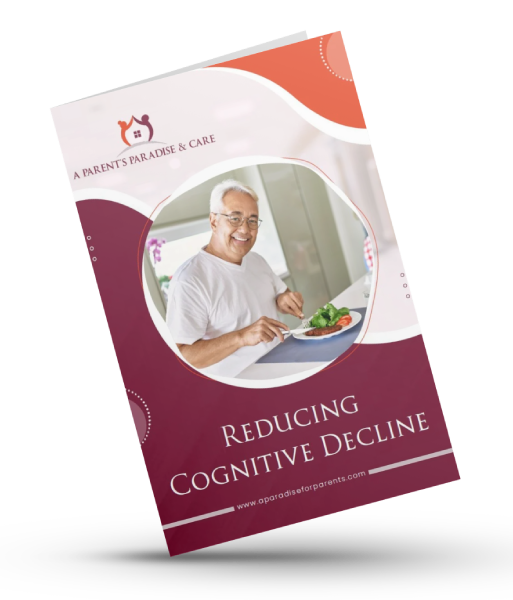Assisted living and memory care are two of the most sought-after long-term options for senior care. According to the U.S. Department of Health and Human Services, more than 70% of senior Americans over the age of 65 years old are going to need long-term care throughout their lifetime. When your loved one is incapable of living independently, the senior’s family and caregivers will have to make a decision as to what type of senior care is appropriate for their loved one – assisted living vs memory care? However, it’s important to remember that not all types of senior care are created equally.
The question is, how would you know which senior care is right for for your loved one? What factors should you consider in making the choice assisted living vs memory care?
The Assisted Living Federation of America defines assisted living as a “long-term care option that combines housing, support services, and healthcare, as needed.” Other personal care services that are offered by assisted living facilities include transportation services, medication management, and overall care available 24/7. Seniors in assisted living facilities have the option to stay in a shared space or a private room, depending on their budget and taste.
When your parent or loved one grows older, they may only need an extra hand to assist them with daily activities or they may require a more complex type of care if they have chronic illnesses or health issues, such as dementia and other age-related problems. There are assisted living facilities that offer memory care services. They usually have a dementia special care unit (SCU).
In choosing an assisted living vs memory care facility, it has to be licensed by the state where it is located and they don’t have to be federally regulated.
With that said, if your elderly loved one is still active but is unable to live alone and needs assistance with daily activities such as dressing, eating, bathing, and the like, an assisted living facility may be the one for him/her.
Assisted Living vs Memory Care
Even though most assisted living facilities these days have memory care units, it’s important to know that both assisted living and memory care are different from one another.
Memory care, judging by its name, is specifically designed to care for patients with dementia, Alzheimer’s disease, and other types of memory problems. Just like assisted living, these special care units provide long-term care for its residents. It involves a 24-hour supervised care that’s located in a separate wing or floor in a facility.
It is similar to assisted living in the sense that if your elderly loved one is no longer capable of caring for him or herself because of memory problems, a special care unit or memory care is a viable solution.
Aside from providing assisted with day to day activities, memory care staff are trained and educated to assist seniors with cognitive impairments or dementia.
In choosing a memory care unit, take into consideration the layout and security of the facility. Especially when your elderly loved one tends to wander. A good unit is intentionally designed for Alzheimer’s and dementia residents to minimize their wandering behavior and making the unit easy to navigate.
Aside from having the care facility licensed by the state, memory care facilities are further standardized in 23 states. There are special care unit disclosure laws which state that care providers must disclose a full list of the special services they offer. However, these laws are not fully implemented in all of the United States. It is better to research on facilities before making this life-changing decision.
The Cost of Long-Term Care
The cost of memory care and assisted living all boils down to a number of factors, such as the size of the room, if they share the space or not, geographic location, and the type of services needed by each individual. Other than that, the cost of each senior care varies.
Generally, assisted living facilities will charge you a monthly rate that comprises the room and board, along with two to three meals every day. Depending on the location of the facility, the average price of a one-bedroom assisted living facility is more or less $3,300 per month. Other facilities that include laundry, housekeeping, and other services are more expensive or they charge extra for these services. With every facility, you visit make sure to ask for a cost breakdown for each of their services.
Since the care offered in special care units are more complex, they tend to be more expensive than regular assisted living facilities. The extra specialized care and nursing services will cost around $5000 per month. However, the cost widely varies.
Caring for your elderly loved one is expensive. Luckily, there are different options available at your disposal to help you pay for senior care and minimize your out-of-pocket expenses, such as Medicaid, Medicare, and veterans’ benefits.
Assisted Living vs Memory Care – The Types of Services Offered
Similarly, the services offered in senior care communities differ from one another. But generally, both assisted living facilities and memory care cover the basics of supervised care, such as medication management, medical monitoring, assistance with daily activities (dressing, mobility, bathing, and the like). Other types of services are typically offered in both senior care communities:
- 24-hour staff supervision and security
- Access to medical care
- Emergency call systems
- Health and exercise programs
- Housekeeping and laundry service
- Social activities and programs
- Three daily meals
- Transportation
For memory care, there are more activities and programs that are designed to help residents who suffer from Alzheimer’s or dementia.
The Verdict: Assisted Living vs Memory Care?
If your loved one is not diagnosed with dementia or Alzheimer’s, or if it is not an immediate concern, and your loved one requires minimal assistance, you might want to go for assisted living facilities.
On the other hand, if the needs of your loved one are complex and if they need constant care due to memory problems of cognitive impairments, then you can consider memory care.
Better yet, you can choose an assisted living community that has special care units for people with dementia or Alzheimer’s.
Paradise for Parents is an assisted living facility with memory care units. Our staff is highly trained and skilled to handle residents in the early, middle, and late stages of Alzheimer’s and dementia. All of our homes work well with memory care residents and our 164th Lane home specializes in dealing with later stages of dementia or AZ.
You can rest easy knowing that all of our caregivers had specialized training. We believe that your loved one deserves nothing but the best, which is why our staff-to-resident ratio enables us to cater to each of our resident’s individual needs.
If you want to know more about us and our services, give us a call at (623) 295-9890 or email us at cam@aparadiseforparents.com. You can also fill out an online form located on our homepage. We’d be happy to assist you in your search for an assisted living facility for your loved one.





